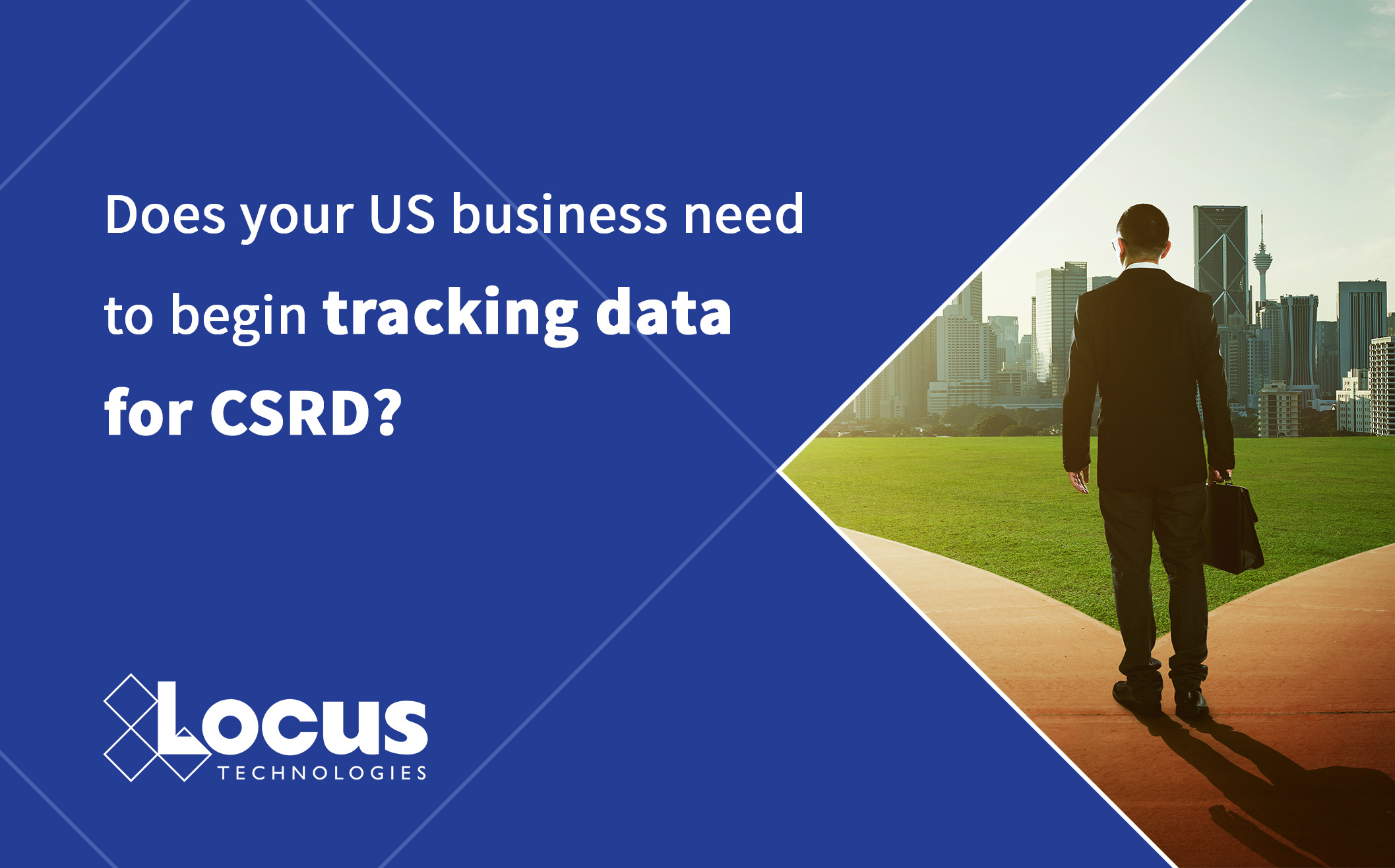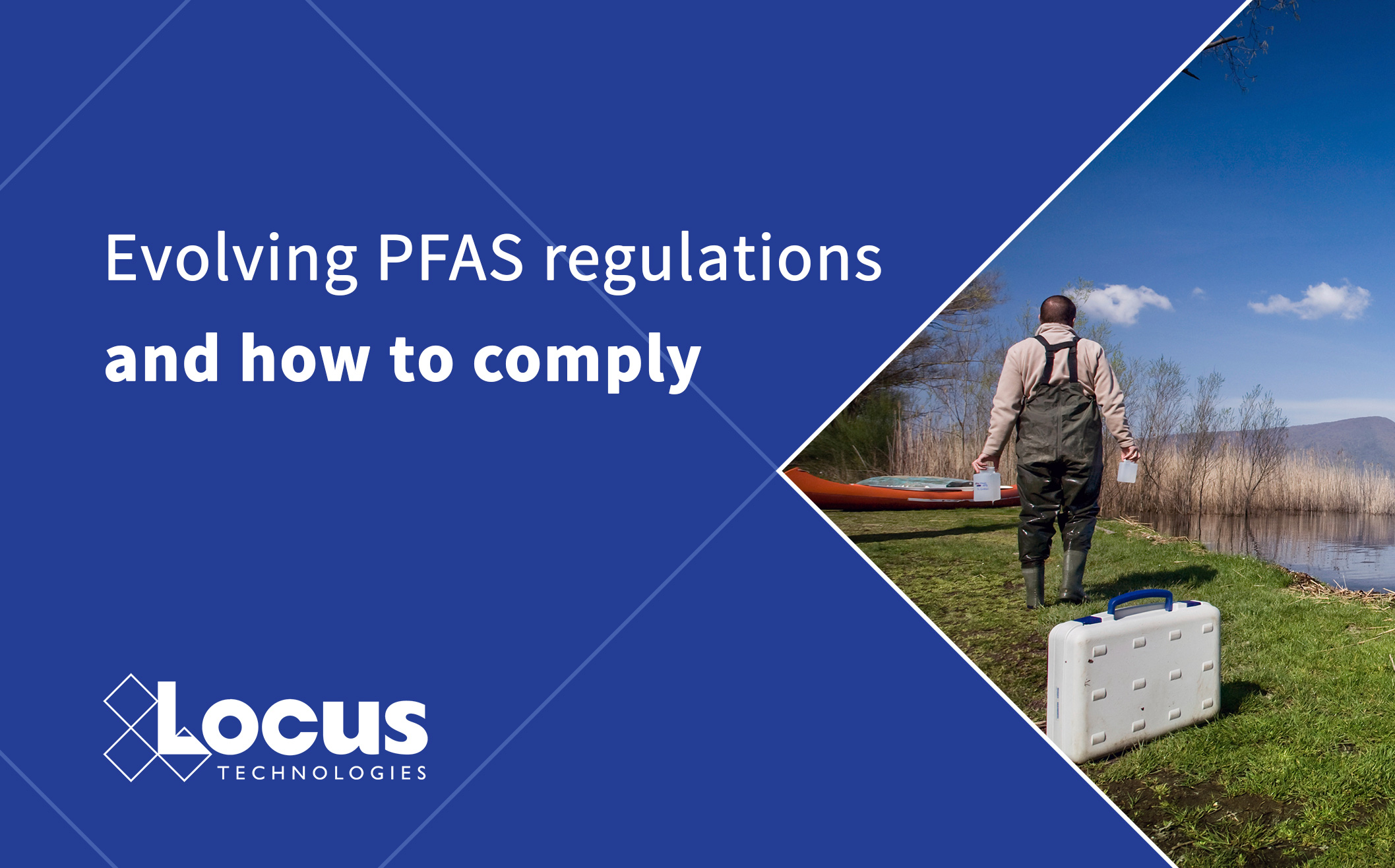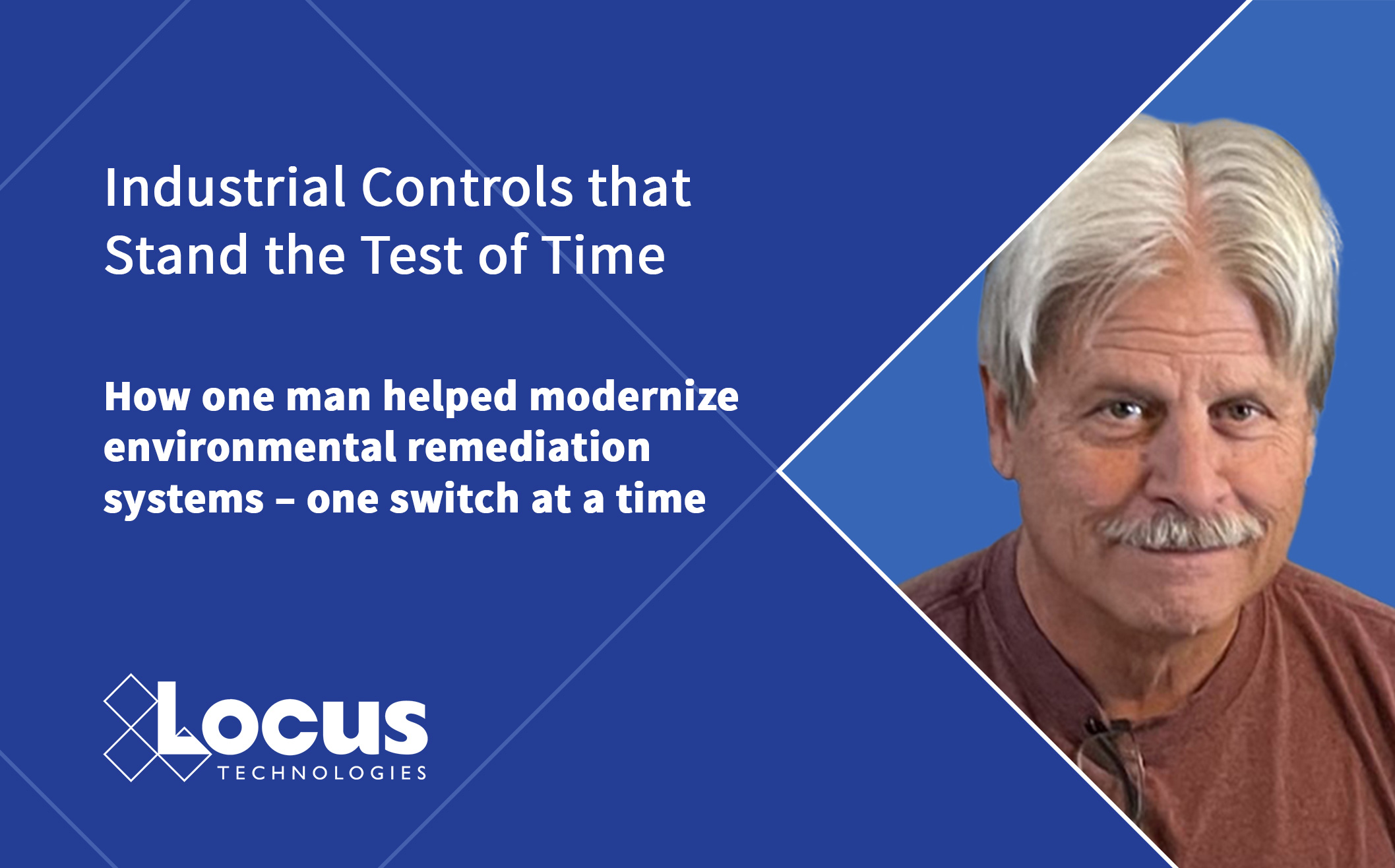
Dr. Zvonimir Dadić has been with Locus Technologies since 2011, collaborating with leading enterprises such as Chevron, Port Authority of NY/NJ, and Aptim. Dr. Dadić brings both academic expertise and practical insights to help businesses navigate complex sustainability reporting requirements like the CSRD.
Starting in January 2025, U.S. companies may need to begin tracking and reporting a wide range of environmental, social, and governance (ESG) data, as part of the European Union’s Corporate Sustainability Reporting Directive (CSRD). While this regulation is specifically aimed at European Union companies, its global reach means many U.S.-based firms will be impacted. But how will companies know if they are required to comply? This article will guide U.S. businesses through the key criteria to determine whether they need to start tracking CSRD data in 2025.
Understanding the CSRD Framework
The CSRD, which came into effect in 2023, updates and expands the EU’s previous Non-Financial Reporting Directive (NFRD) to make corporate sustainability reporting more comprehensive, standardized, and reliable. Under the CSRD, companies are required to disclose information on a variety of sustainability metrics, including climate risks, diversity and inclusion efforts, and governance practices, among other ESG factors.
The CSRD applies to large companies and publicly traded entities within the EU but has indirect effects on non-EU companies, particularly those that have significant operations or commercial ties with the EU.
Key Criteria for U.S. Companies: Size, Presence, and Financial Reporting
For a U.S. company to determine if it is subject to the CSRD, there are three main factors to consider: its size, its presence in the EU market, and whether it meets certain financial reporting thresholds.
Size Thresholds
The CSRD will apply to all large public-interest entities (PIEs) within the EU, which typically includes companies that meet at least two of the following criteria:
- Revenue: Over €40 ($41.45) million annually.
- Total assets: Over €20 ($20.72) million.
- Employees: Over 250 employees.
For U.S. companies, the key question is whether they exceed these thresholds for their EU-based operations. If a U.S. company has subsidiaries or operations in the EU that meet these criteria, it may be required to start tracking and reporting CSRD data.
EU-Listed or EU-Registered Companies
If a U.S. company is listed on a European stock exchange or has issued securities that are traded in the EU, it will automatically fall under the CSRD reporting requirements starting immediately. This applies regardless of whether the company has significant operations within the EU itself. Companies listed on the EU’s regulated markets will need to comply with CSRD disclosures starting in January 2025 and report 2024 data.
EU-Based Parent Companies
Another key consideration is whether a U.S. company is a subsidiary of an EU-based parent company. If the EU parent is subject to the CSRD, the subsidiary may also be required to comply, even if the subsidiary is based outside the EU. Companies should carefully assess their corporate structure and affiliations to determine if this applies.
Non-EU Companies with Significant EU Business
Even if a U.S. company does not meet the above thresholds directly, it could still be subject to CSRD requirements if it has a substantial presence in the EU. Specifically, U.S. companies that:
- Have a significant amount of revenue from EU customers.
- Operate in high-impact sectors like energy, finance, or manufacturing in the EU.
- Are involved in supply chain relationships with EU companies.
will likely be caught by the CSRD’s extended reach. For instance, companies that are suppliers to large EU firms may be required to report ESG data if their clients’ compliance with the CSRD extends to their value chains.
Third-Party Reporting and the Double Materiality Principle
The CSRD introduces a concept called double materiality, which requires companies to report not only on how sustainability issues affect their financial performance but also how their operations impact the environment and society. This dual focus means that companies will need to track both internal and external ESG data, and they must disclose these factors in line with the EU’s sustainability reporting standards.
For U.S. companies, it’s essential to understand that third-party auditors and reporting standards will likely play a significant role in compliance. If an American company falls under CSRD requirements, it will need to ensure that the data it tracks can be independently verified.
Practical Steps for U.S. Companies
To determine whether they need to track CSRD data in January 2025, U.S. companies should take the following steps:
- Review EU market exposure: Assess the company’s EU revenue, operations, and subsidiaries.
- Check for EU listing or significant market participation: Evaluate whether the company is listed on a European exchange or has a substantial market presence in the EU.
- Examine supply chain relationships: Consider whether the company has major customers or suppliers in the EU that might impose CSRD-related requirements.
- Consult with legal and compliance advisors: Work with legal counsel or consultants familiar with EU regulations to ensure proper understanding of the CSRD’s reach.
Conclusion
For U.S. companies, the CSRD introduces new reporting obligations starting in 2025, requires tracking extensive ESG data if they meet certain thresholds for size, market presence, or EU-related operations. Businesses must proactively assess their exposure to the EU market and begin preparing their internal processes to comply with the regulations. By understanding these criteria and taking early action, U.S. companies can navigate the complexities of the CSRD and ensure they comply with evolving global sustainability standards. For more information, please get in touch with Locus Technologies at info@locustec.com tec.com or call our EU-based representative, Ms. Sara Zekić, at +385-95-595-1004.
Locus is the only self-funded water, air, soil, biological, energy, and waste EHS and ESG reporting software company that is still owned and managed by its founder. The brightest minds in environmental science, embodied carbon, CO2 emissions, refrigerants, and PFAS hang their hats at Locus, and they’ve helped us to become a market leader in compliance and ESG reporting software. Every client-facing employee at Locus has an advanced degree in science or professional EHS experience, and they incubate new ideas every day – such as how machine learning, AI, blockchain, and the Internet of Things will up the ante for EHS, ESG reporting software, and sustainability.



